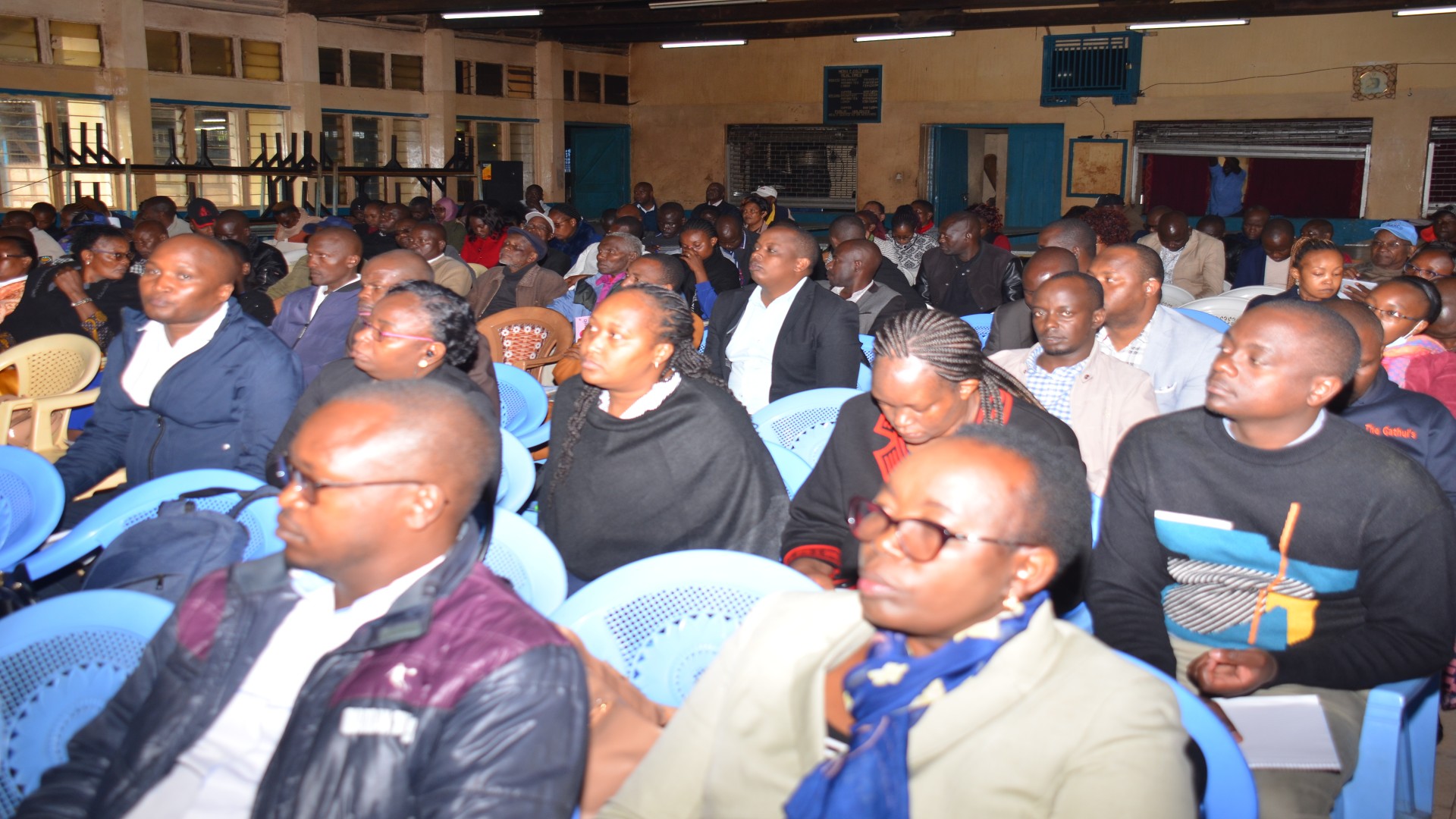Kenyan youth could be losing out on reaping the full benefits of their innovations due to ignorance about patent laws that grant them exclusive use and commercial benefit of their inventions.
According to Kabarak University Director Research Innovation Outreach, Dr Moses Thiga, some students prefer to sell their innovations to institutions or researchers organisations at lower rates and go back to the drawing board to develop others instead of patenting the same.
Speaking during a mentorship program for students drawn from Universities, Technical Vocational Education Training Institutes and youth polytechnics Dr Thiga said another significant proportion of innovative students do not engage themselves in actualization of their ideas out of fear that their creations would be stolen by others.
“There is a need to sensitize young innovators on protection of their creative work. Apart from being aware of intellectual property rights, potential innovators should know the bodies that deal with property rights so that they can confirm the novelty of their ideas and the process of having those approved patented,” Dr Thiga noted.
There are three main types of protection for innovation; copyrights (for original artistic expression like paintings, photos, books and songs), patents (mostly for original ideas in the scientific, medical, health and technology fields) and trademarks (mostly for graphics, logos, shapes, signs, sounds and even smells that distinguish products).
Dr Thiga admitted that Technical Vocational Education Training Institute, university and college students showcased noble innovations during various exhibitions countrywide, but faulted them for disclosing more about the discoveries before they are patented.
“It is encouraging to witness hard work and creativity of the students across the County who have come up with innovative products including a variety of soft wares and mobile applications that have the potential to drive the Big 4 agenda,” Thiga said.
The Research Director disclosed that Kabarak University and the County Government of Nakuru were jointly exploring ways of encouraging innovation and the need for inventors to acquire intellectual property rights for their creations.
Dr Thiga called on the Kenya Industrial Property Institute (KIPI), other relevant government bodies including enforcement agencies and institutions of higher learning to collaborate and take the same knowledge to the youth and protect their intellectual property.
“If all parties play their role Kenya’s ranking will improve in the Intellectual Rights Global Index. More crucially, our youth will reap dividends from their intellectual investments and will be even more motivated to re-invest in their minds,” Thiga pointed out.
The devolved unit and the university have lined up a Central Rift innovation week to be held in October this year in Nakuru where industrialists, financial institutions and educational facilities are expected to showcase their products. Also invited are intellectual property lawyers and entrepreneurs.
Dr Thiga, said students keen on innovations and entrepreneurs should seek patents before disclosing features of their innovations to the public in order to safeguard them against violation.
He said the applicants will enjoy monopoly over the production and marketing of the patented products once their application is approved. Adding that to own intellectual property rights; one must have registered with relevant institutions locally or where Kenya is a member, in order to qualify for protection.
Kenya Industrial Property Institute (KIPI) is mandated to administer industrial property rights and provide information to the public. Others include Kenya Plant Health Inspectorate Service, World Intellectual Property Organization and the African Regional Intellectual Property Organization.
County Information Communication Technology Director, Mr Leonard Kirui, noted that the creativity and innovativeness of brilliant young Kenyans needed to be legally secured from imminent theft as there were numerous innovations being developed by the youth who end up being edged out at the commercialization phase of their ingenious mental outputs.
“As a country we are slowly moving from an agricultural dominant economy to a knowledge based economy. Value and wealth will soon no longer be determined by acreage of land or heads of cattle owned but by mental assets possessed. Our youths cannot mount a formidable defense of their intellectual property from a position of misconception,” Mr Kirui said.
He further said there were numerous online opportunities, which innovative youth could leverage on to be self-employed.
According to the acting Director at KIPI, Mr John Onyango, innovations are catalysts for economic growth hence patenting the innovations will allow effective tools for knowledge sharing and transfer of technology.

